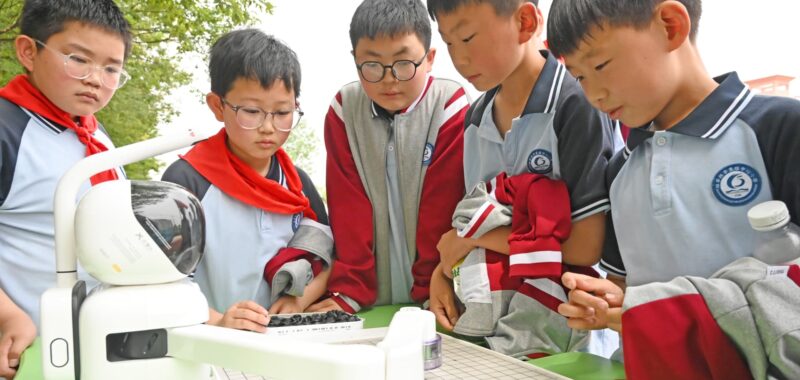BEIJING — China’s latest education policies for the year restrict the extent to which children can use generative artificial intelligence in the classroom, according to a local government report on Thursday.
The guidelines cited in the report, which weren’t publicly available, covered AI education and generative AI use in primary and secondary schools during 2025.
China’s Ministry of Education did not immediately respond to a request for comment.
Primary school students are prohibited from using unrestricted generative AI tools on their own, although an instructor may use the tech to assist with teaching, according to the local government report.
It added that middle schoolers can explore how generative AI reasons and analyzes information, while high schoolers are allowed to use the tech more broadly.
The report said the policies banned students from directly copying AI-generated content into homework and called on schools to establish a list of approved generative AI tools that can be used on school grounds.
The People’s Daily, the official newspaper of the ruling Chinese Communist Party, mentioned the new guidelines on the sixth page of its Thursday edition.
But the national state media report did not discuss specific limits on AI use, and instead focused on how the policies aimed to promote “scientific” and “standardized” promotion of AI education suited to various stages of education, according to a CNBC translation.
Use of generative AI in China has increased significantly after DeepSeek, a homegrown rival to OpenAI, in late January released a chatbot app. Tencent, ByteDance and other companies have released similar chatbots that have surged in popularity in China.

